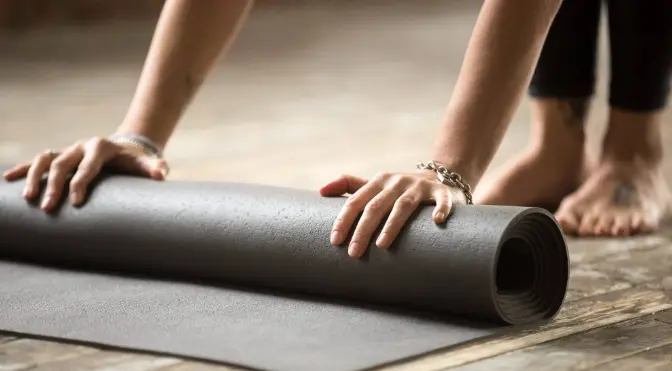Unroll Your Mat and Unwind Your Mind: The Multifaceted Benefits of Yoga
Yoga. The word itself conjures up images of bendy bodies twisted into impossible shapes. But yoga is so much more than just a physical practice. It’s an ancient discipline that offers a holistic approach to well-being, weaving together physical postures (asanas), breathing exercises (pranayama), and meditation for a complete mind-body experience.
Whether you’re a seasoned athlete or a complete beginner, yoga has something to offer everyone. Here’s a deep dive into the multifaceted benefits of yoga, exploring how it can enhance your physical and mental health:
Physical Benefits:
-
Enhanced Flexibility and Mobility: Yoga poses, held with deep breaths, gently stretch and lengthen muscles, improving your range of motion. This increased flexibility can translate into better posture, reduced pain, and even improved athletic performance.
-
Boosted Strength and Muscle Tone: Don’t underestimate the power of holding a yoga pose! Many asanas engage multiple muscle groups, strengthening and toning your entire body. From core work in plank pose to arm strength in downward-facing dogs, yoga builds a strong foundation.
-
Improved Balance and Stability: Balancing poses like tree pose and warrior poses challenge your proprioception (body awareness) and vestibular system (balance). With regular practice, you’ll develop better balance and stability, reducing your risk of falls.
-
Stress Relief and Improved Sleep: The combination of physical movement, deep breathing, and mindfulness practiced in yoga has a profound effect on your stress response. By calming the nervous system, yoga can help you unwind, de-stress, and get a better night’s sleep.
-
Pain Management: Yoga can be a powerful tool for managing chronic pain, especially lower back pain. Certain poses can help stretch and strengthen muscles that support the spine, while mindfulness techniques can help you manage pain perception.
Mental and Emotional Benefits:
-
Reduced Stress and Anxiety: The focus on breath and present-moment awareness in yoga acts as a natural stress reliever. By quieting the mind and calming the nervous system, yoga can help you manage anxiety and cultivate inner peace.
-
Enhanced Mood and Well-being: Studies suggest that yoga can boost mood and promote feelings of well-being. The combination of physical activity, relaxation, and mindfulness can help combat symptoms of depression and create a more positive outlook.
-
Improved Focus and Concentration: Yoga teaches you to focus your attention on the present moment, both on the physical sensations in your body and the rhythm of your breath. This enhanced focus can translate into better concentration in daily life.
-
Increased Self-Awareness: Yoga encourages you to tune into your body’s sensations and limitations. This heightened awareness can empower you to make healthier choices on and off the mat, fostering a sense of self-compassion and body acceptance.
-
Greater Resilience: Yoga teaches you to navigate discomfort with grace. Holding challenging poses can build mental and physical resilience, helping you cope with stressful situations and challenges in life with more ease.
Beyond the Physical:
Yoga is not just about the poses. It’s a philosophy that emphasizes living a mindful and meaningful life. Here are some additional benefits you might experience:
-
Stronger Sense of Community: Many yoga studios foster a welcoming and supportive environment. Practicing yoga alongside others can create a sense of community and belonging.
-
Improved Self-Care: Yoga encourages you to prioritize your well-being. Taking time for your yoga practice can become a form of self-care, reminding you to invest in your physical and mental health.
-
Personal Growth: Yoga is a journey of self-discovery. As you deepen your practice, you may find yourself becoming more patient, compassionate, and understanding towards yourself and others.
Getting Started with Yoga:
The beauty of yoga is that it’s accessible to everyone. Here are some tips to get you started:
-
Find the Right Style: There are many different styles of yoga, from the vigorous Vinyasa flow to the more restorative Yin yoga. Explore different classes to find one that suits your fitness level and preferences.
-
Listen to Your Body: Don’t push yourself beyond your limits. Yoga is not about achieving perfect poses; it’s about honoring your body and working within your capabilities.
-
Invest in a Good Mat: A comfortable yoga mat will provide cushioning and support throughout your practice.
-
Seek Guidance: Consider taking a few classes with a qualified yoga instructor. They can guide you through proper alignment, answer your questions, and provide modifications for different poses.
Unroll your mat, take a deep breath, and embark on your yoga journey. You might be surprised by the positive transformations it brings to your physical and mental well-being.
Remember, yoga is a practice, not a destination. Be patient, be kind to yourself, and enjoy the process!


Comments are closed, but trackbacks and pingbacks are open.